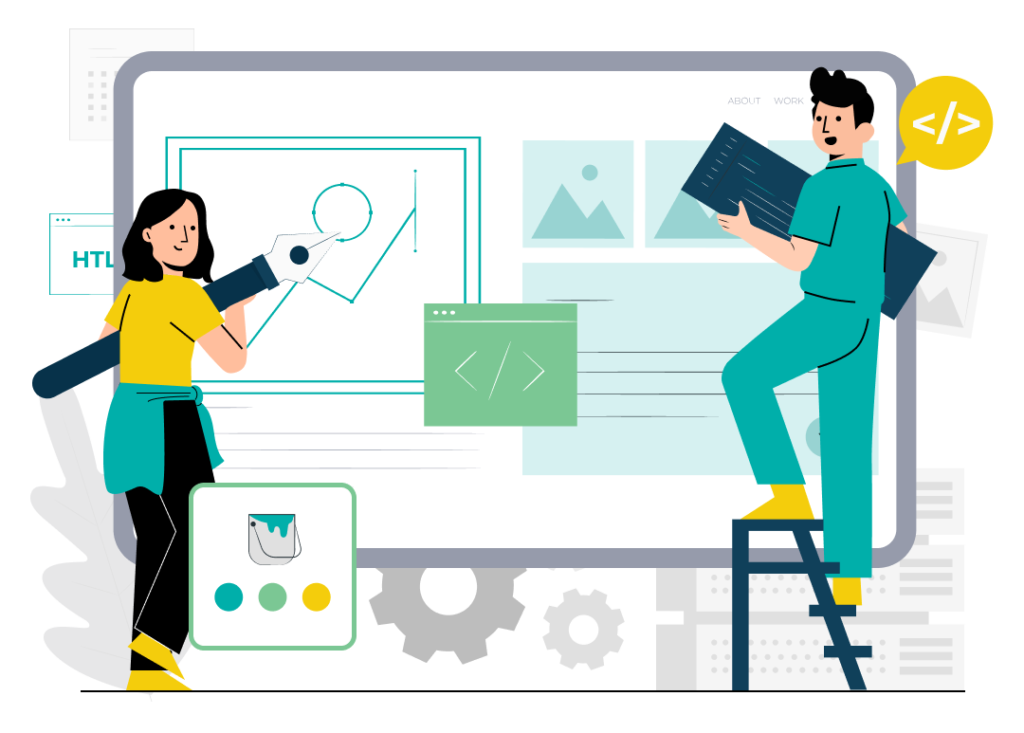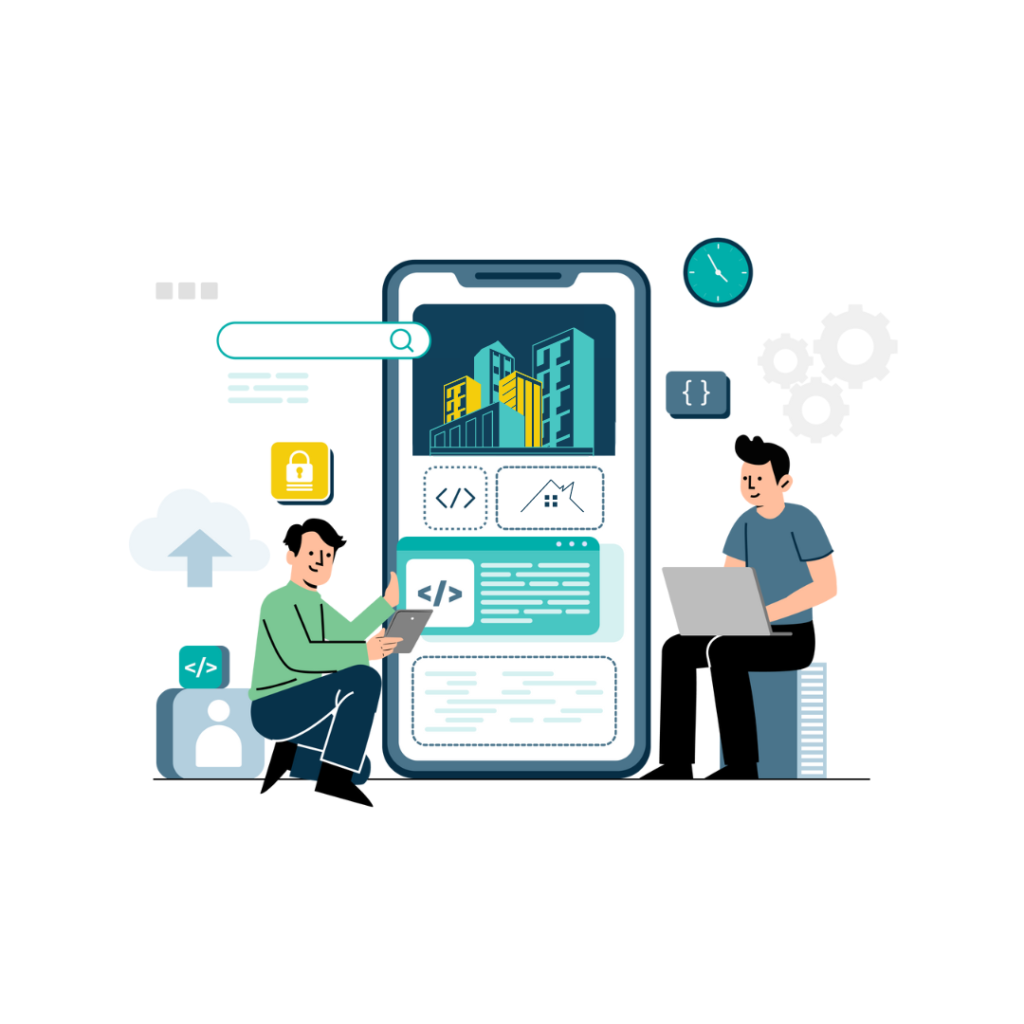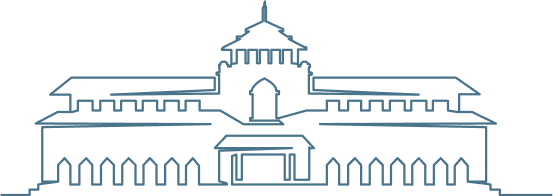The Ultimate Guide to Choosing the Right Property Management System
Managing properties, whether residential or commercial, can be a complex task. From handling tenant leases to tracking maintenance requests and ensuring compliance with legal regulations, property management requires efficient organization and streamlined processes. This is where property management systems come into play. But what exactly are property management systems, and why is choosing the right one crucial for property owners and managers?
Definition of a Property Management System
A property management system (PMS) is a software solution designed to streamline and automate various tasks associated with property management. These tasks may include lease and tenant management, rent collection, maintenance tracking, financial reporting, and more. Essentially, a PMS acts as a centralized hub for all property-related operations, allowing property owners and managers to oversee their portfolios more efficiently.
Importance of Choosing the Right Property Management System
Selecting the right property management system is vital for several reasons:
Efficiency and Productivity
A well-chosen PMS can significantly increase efficiency and productivity by automating repetitive tasks and providing tools for better organization and communication.
Improved Tenant Satisfaction
With features such as online rent payment portals, maintenance request tracking, and clear communication channels, a good PMS can enhance the tenant experience, leading to higher satisfaction and retention rates.
Financial Management
Effective financial management is crucial for the success of any property management business. The right PMS should offer robust accounting features, such as rent collection, expense tracking, and financial reporting, to help property owners stay on top of their finances.
Compliance and Legal Requirements
Property management is subject to various legal regulations and compliance standards. A reliable PMS should include features to ensure compliance with local tenancy laws, data protection regulations, and other legal requirements, reducing the risk of costly penalties or disputes.
Scalability and Growth
As property portfolios expand, the need for a scalable PMS becomes more apparent. The right system should be able to grow with the business, accommodating an increasing number of properties and tenants without compromising performance or functionality.
Cost-Effectiveness
While there may be upfront costs associated with implementing a property management system, the long-term benefits often outweigh the initial investment. A good PMS can help reduce operational costs, minimize vacancies, and optimize revenue streams, ultimately leading to a higher return on investment.
In summary, choosing the right property management system is crucial for streamlining operations, enhancing tenant satisfaction, ensuring compliance with legal requirements, facilitating growth, and maximizing profitability. By investing time and effort into selecting the most suitable PMS for their needs, property owners and managers can set themselves up for long-term success in the competitive real estate market.
Streamline Your Property Management: Essential Features for Success
In today’s digital age, property management systems (PMS) have become invaluable tools for property owners and managers to streamline their operations and enhance efficiency. But with numerous options available in the market, how do you choose the right PMS for your needs? Let’s explore the essential features that can make a property management system truly efficient and effective.
User-Friendly Interface and Dashboard
A user-friendly interface and dashboard are essential components of any property management system. Here’s why:
Intuitive Navigation for Ease of Use
A PMS should have an intuitive interface that makes it easy for users to navigate through various features and functions. From adding new properties to managing tenant information and generating reports, every aspect of the system should be accessible with just a few clicks. Intuitive navigation saves time and reduces the learning curve for users, allowing them to focus on managing their properties effectively.
Customizable Dashboard for Quick Access to Important Information
The dashboard serves as the central hub where users can view key metrics and access important information at a glance. A customizable dashboard allows users to tailor the display according to their preferences and priorities. Whether it’s monitoring rent payments, tracking maintenance requests, or reviewing lease agreements, a well-designed dashboard provides quick insights into the health and performance of your property portfolio.
Comprehensive Tenant and Lease Management
Effective tenant and lease management are fundamental aspects of property management. Here’s how a robust PMS can help:
Tenant Database Management
A comprehensive tenant database is essential for keeping track of tenant information, including contact details, lease agreements, rental history, and communication logs. A PMS with robust tenant management features allows users to easily search, filter, and update tenant records, ensuring accurate and up-to-date information at all times.
Lease Agreement Tracking and Renewal Reminders
Managing lease agreements can be a complex process, especially for properties with multiple tenants and lease terms. A PMS with lease tracking functionality enables users to store and track lease agreements, monitor lease expiration dates, and set up automated renewal reminders. By staying on top of lease renewals, property owners can minimize vacancies and ensure a steady income stream.
Robust Maintenance Tracking and Work Order Management
Maintenance is an inevitable part of property management, and efficient maintenance tracking is essential for ensuring timely repairs and maintenance. Here’s how a PMS can help:
Maintenance Request Submission and Tracking
Tenants often require maintenance assistance, whether it’s fixing a leaky faucet or repairing a malfunctioning appliance. A PMS with maintenance request submission and tracking features allows tenants to submit maintenance requests online, and property managers can track the status of each request, assign tasks to maintenance staff, and communicate updates to tenants seamlessly.
Vendor Management for Timely Repairs and Maintenance
Collaborating with reliable vendors is crucial for timely and quality repairs. A PMS with vendor management capabilities streamlines the process of finding, hiring, and managing vendors for maintenance work. From obtaining quotes to scheduling appointments and tracking expenses, an integrated vendor management system simplifies the entire maintenance workflow, ensuring prompt resolution of maintenance issues.
Financial Management and Reporting Capabilities
Effective financial management is essential for the success of any property management business. Here’s how a PMS can support financial management:
Rent Collection and Accounting Integration
A PMS should facilitate seamless rent collection through various payment methods, such as online payments, bank transfers, or automatic deductions. Integration with accounting software enables users to track rent payments, manage expenses, reconcile accounts, and generate financial reports effortlessly. By automating rent collection and accounting processes, property owners can streamline financial management and reduce administrative overhead.
Detailed Financial Reporting for Property Performance Analysis
Analyzing the financial performance of your properties is vital for making informed decisions and identifying areas for improvement. A PMS with robust reporting capabilities offers a range of predefined reports and customizable dashboards that provide insights into key financial metrics, such as rental income, expenses, occupancy rates, and cash flow. By regularly reviewing financial reports, property owners can identify trends, track performance against goals, and optimize their property management strategies accordingly.
Property management systems with user-friendly interface and dashboard, comprehensive tenant and lease management features, robust maintenance tracking and work order management capabilities, and advanced financial management and reporting functionalities can significantly enhance the efficiency and effectiveness of property management operations. By investing in the right PMS that meets their specific needs and requirements, property owners and managers can streamline their workflows, improve tenant satisfaction, and maximize their returns on investment.
Streamlining Your Property Management with Automation and Integration
Efficiency is key to success in the fast-paced world of property management. With the advent of technology, property managers now have access to tools and systems that can automate tasks and integrate with other platforms, streamlining processes and saving time. Let’s explore the automation and integration features that can revolutionize property management operations.
Automated Rent Collection and Late Fee Management
One of the most time-consuming tasks for property managers is rent collection. However, with automated rent collection features, this process can be streamlined and made more efficient.
Automated Rent Reminders and Notifications
Keeping track of rent due dates and sending out reminders to tenants can be a tedious task. With automated rent reminders and notifications, property managers can set up automatic alerts to remind tenants when rent is due, reducing the risk of late payments and ensuring consistent cash flow.
Late Fee Calculation and Management
Late payments can disrupt cash flow and lead to financial strain for property owners. Automated late fee calculation and management features can help mitigate this risk by automatically calculating late fees based on predefined rules and applying them to overdue accounts. This not only ensures that tenants are held accountable for late payments but also simplifies the process for property managers.
Integration with Online Listing Platforms
To attract tenants and fill vacancies quickly, property managers need to have a strong online presence. Integration with online listing platforms can help achieve this goal by making it easier to manage property listings and reach potential tenants.
Seamless Integration with Property Listing Websites
Manually updating property listings on multiple websites can be time-consuming and prone to errors. With seamless integration with property listing websites, property managers can automatically sync their listings across various platforms, ensuring consistency and accuracy. This not only saves time but also increases the visibility of properties, ultimately leading to faster rentals.
Automatic Updating of Listings and Availability
Vacancies can arise unexpectedly, and it’s crucial to update listings promptly to attract new tenants. Integration with online listing platforms allows property managers to automatically update listings and availability status in real-time as properties become available or are rented out. This ensures that potential tenants have access to up-to-date information, minimizing vacancies and maximizing occupancy rates.
Integration with Accounting Software
Efficient financial management is essential for the success of any property management business. Integration with accounting software can help streamline financial processes and ensure accurate record-keeping.
Syncing Financial Data with Accounting Systems
Manually entering financial data into accounting software can be prone to errors and time-consuming. Integration with accounting systems allows property managers to sync financial data automatically, including rent payments, expenses, and invoices. This ensures that financial records are up-to-date and accurate, making tax season and financial reporting much smoother.
Streamlined Bookkeeping Processes
Managing finances for multiple properties can be complex, requiring meticulous bookkeeping. Integration with accounting software streamlines bookkeeping processes by providing tools for categorizing transactions, reconciling accounts, and generating financial reports. This not only saves time but also provides property managers with valuable insights into the financial health of their portfolios.
Automation and integration features can revolutionize property management operations by streamlining processes, saving time, and improving efficiency. Whether it’s automating rent collection, integrating with online listing platforms, or syncing financial data with accounting software, these features empower property managers to focus on providing excellent service to tenants and maximizing returns for property owners. By embracing technology and leveraging automation and integration capabilities, property managers can stay ahead of the curve in an increasingly competitive market.
Ensuring Security and Compliance in Property Management: A Guide for Success
Ensuring the security of sensitive data and compliance with legal regulations is paramount. From tenant information to financial records, property managers handle a wealth of confidential data that must be protected. Let’s explore the security and compliance measures that property managers should implement to safeguard their operations and maintain regulatory compliance.
Data Security Protocols
Protecting sensitive data from unauthorized access and cyber threats is crucial for maintaining the trust and confidence of tenants and property owners. Here are some essential data security protocols to consider:
Encryption and Secure Access Controls
Encryption is a powerful tool that converts data into an unreadable format, making it indecipherable to unauthorized users. Property management systems should employ robust encryption protocols to protect sensitive data, such as tenant information, lease agreements, and financial records. Additionally, implementing secure access controls, such as multi-factor authentication and role-based permissions, helps prevent unauthorized access to confidential data and ensures that only authorized personnel can view or modify sensitive information.
Regular Data Backups for Disaster Recovery
Data loss can occur due to various factors, including hardware failure, cyber attacks, or natural disasters. Regular data backups are essential for mitigating the risk of permanent data loss and ensuring business continuity in the event of a crisis. Property managers should establish automated backup procedures to regularly backup critical data to secure off-site locations or cloud storage. This ensures that data can be quickly restored in the event of a disaster, minimizing downtime and disruption to operations.
Compliance with Legal Regulations
Property management operations are subject to various legal regulations and compliance standards, both at the national and local levels. Failure to comply with these regulations can result in legal liabilities, financial penalties, and damage to reputation. Here’s how property managers can ensure compliance with legal regulations:
GDPR Compliance for Data Protection
The General Data Protection Regulation (GDPR) is a comprehensive data protection law that governs the processing of personal data of individuals within the European Union (EU). Even if your property management business is not based in the EU, if you collect or process personal data of EU residents, you must comply with GDPR requirements. This includes obtaining consent for data processing, implementing data protection measures, such as encryption and access controls, and providing individuals with rights over their personal data, such as the right to access, rectify, or delete their information. Property managers should review their data processing practices and ensure compliance with GDPR regulations to avoid potential legal consequences.
Compliance with Local Tenancy Laws and Regulations
Property managers must also comply with local tenancy laws and regulations, which vary depending on the jurisdiction. These regulations govern various aspects of property management, including tenant rights and responsibilities, lease agreements, rent control, eviction procedures, and maintenance standards. Property managers should stay informed about the latest developments in local tenancy laws and regulations and ensure that their operations comply with legal requirements. This may involve consulting legal experts or industry associations to ensure adherence to best practices and avoid legal disputes with tenants or regulatory authorities.
Ensuring security and compliance in property management is essential for protecting sensitive data, maintaining trust with stakeholders, and avoiding legal liabilities. By implementing robust data security protocols, such as encryption and secure access controls, and ensuring compliance with legal regulations, such as GDPR and local tenancy laws, property managers can safeguard their operations and uphold the highest standards of professionalism and integrity. By prioritizing security and compliance, property managers can build a reputation for reliability and trustworthiness, fostering long-term relationships with tenants and property owners.
Scaling Your Property Management: The Importance of Scalability and Customization
As property managers strive to meet the ever-changing demands of the real estate market, the need for scalable and customizable property management solutions becomes increasingly evident. In a landscape where growth and adaptability are key to success, property managers must have tools and systems in place that can grow with their business and adapt to their unique needs. Let’s explore the importance of scalability and customization in property management and how they can benefit property managers and owners alike.
Scalability for Growing Property Portfolios
Managing a growing portfolio of properties requires systems that can scale alongside the business. Here are two key aspects of scalability:
Ability to Add New Properties and Units Easily
As property managers acquire new properties or expand existing ones, they need a property management solution that allows them to add new properties and units seamlessly. This means having intuitive tools for property setup and configuration, as well as the ability to import or migrate data from existing systems. Scalable property management systems make it easy to onboard new properties and units, ensuring that growth doesn’t lead to administrative headaches or inefficiencies.
Performance Optimization for Large-Scale Operations
As the number of properties and tenants grows, performance becomes a critical factor. Scalable property management systems should be able to handle large volumes of data and transactions without sacrificing speed or reliability. This may involve optimizations such as database sharding, caching, or distributed computing to ensure that the system remains responsive and reliable, even under heavy loads. By investing in a scalable solution, property managers can future-proof their operations and support continued growth without performance bottlenecks.
Customization for Specific Business Needs
Every property management business is unique, with its own set of processes, workflows, and requirements. Customization options allow property managers to tailor their property management system to meet their specific needs. Here’s how customization can benefit property managers:
Flexible Configuration Options
A one-size-fits-all approach rarely works in property management. Property managers need the flexibility to customize their property management system to align with their specific business processes and preferences. This may include configuring workflows, defining custom fields, or setting up automated rules and notifications. Flexible configuration options empower property managers to design a system that fits their unique requirements, rather than being constrained by rigid templates or predefined workflows.
Add-Ons and Integrations for Tailored Solutions
No property management system can do it all, which is why integrations and add-ons play a crucial role in customization. Property managers may require additional functionality, such as online rent payments, maintenance tracking, or marketing tools, that are not included out-of-the-box. Integrations with third-party services or add-ons developed by third-party developers allow property managers to extend the capabilities of their property management system and create a tailored solution that meets their specific needs. Whether it’s integrating with accounting software, property listing platforms, or maintenance providers, customization through integrations provides property managers with the flexibility to build a comprehensive and efficient property management ecosystem.
In conclusion, scalability and customization are essential considerations for property managers looking to future-proof their operations and optimize efficiency. By investing in scalable property management solutions that can grow with their business and offering customization options to tailor the system to their specific needs, property managers can streamline workflows, improve productivity, and provide better service to tenants and property owners. With the right tools and systems in place, property managers can navigate the complexities of the real estate market with confidence and success.
Empowering Property Managers: The Importance of Customer Support and Training
Having access to reliable customer support and comprehensive training resources can make all the difference. From navigating complex software to troubleshooting technical issues, property managers rely on these resources to optimize their operations and provide excellent service to tenants and property owners. Let’s delve into why customer support and training are essential in property management and how they can benefit property managers.
Access to Knowledge Base and Training Materials
Online Tutorials and Documentation: Property management software can be complex, with numerous features and functionalities to master. That’s why access to online tutorials and documentation is invaluable. These resources provide step-by-step guides, video tutorials, and user manuals to help property managers navigate the software efficiently. Whether it’s setting up a new property, generating financial reports, or managing maintenance requests, online tutorials offer practical guidance to address common challenges and maximize the use of the software.
Dedicated Support Channels for Assistance
Despite the availability of tutorials and documentation, there may be times when property managers encounter issues or have questions that require personalized assistance. Dedicated support channels, such as email, phone, or live chat support, offer direct access to knowledgeable support staff who can provide timely assistance and resolve queries efficiently. Whether it’s troubleshooting technical issues, clarifying software functionalities, or addressing billing inquiries, dedicated support channels ensure that property managers receive the assistance they need when they need it most.
Ongoing Updates and Maintenance
Regular Software Updates for Improved Functionality
Property management software is constantly evolving to meet the changing needs of property managers and adapt to industry trends. Regular software updates introduce new features, performance enhancements, and security patches to ensure that the software remains current and effective. By staying up-to-date with the latest updates, property managers can take advantage of new functionalities, improve productivity, and enhance the overall user experience. Additionally, regular updates help address software bugs and vulnerabilities, minimizing the risk of system downtime and data breaches.
Responsive Customer Support for Technical Issues
Despite proactive measures, technical issues may arise from time to time, disrupting operations and causing frustration for property managers. Responsive customer support plays a crucial role in addressing these issues promptly and minimizing downtime. Property management software providers should offer responsive customer support channels, such as ticketing systems or live chat, to facilitate quick resolution of technical issues. Whether it’s troubleshooting software glitches, addressing performance issues, or providing guidance on system configuration, responsive customer support ensures that property managers receive timely assistance and can resume their operations without delay.
Access to comprehensive customer support and training resources is essential for empowering property managers to effectively utilize property management software and deliver exceptional service to tenants and property owners. Whether it’s accessing online tutorials, receiving personalized assistance through dedicated support channels, staying up-to-date with regular software updates, or receiving responsive support for technical issues, these resources are invaluable in optimizing property management operations and maximizing efficiency. By investing in robust customer support and training initiatives, property management software providers can empower property managers to succeed in the competitive real estate market and achieve their business goals with confidence.
Making Informed Decisions in Property Management: Understanding Cost-Effectiveness and Return on Investment
When it comes to property management, making informed decisions is crucial for success. From choosing the right property management software to implementing cost-effective strategies, property managers must carefully evaluate the costs and benefits associated with their decisions. In this article, we’ll explore the concepts of cost-effectiveness and return on investment (ROI) in property management and how they can impact your bottom line.
Evaluation of Total Cost of Ownership
Initial Setup Costs vs. Long-Term Benefits
When considering a property management solution, it’s essential to evaluate the total cost of ownership. This includes not only the initial setup costs but also the long-term benefits that the system can provide. While some solutions may have lower upfront costs, they may lack essential features or scalability, leading to higher costs in the long run. Conversely, investing in a comprehensive property management system with robust features and scalability may have higher upfront costs but can offer significant long-term benefits, such as improved efficiency, streamlined operations, and increased revenue.
Consideration of Subscription Fees and Additional Charges
Many property management solutions operate on a subscription-based model, where users pay a recurring fee for access to the software. When evaluating the total cost of ownership, it’s essential to consider not only the base subscription fees but also any additional charges or hidden costs, such as fees for additional users, premium features, or customer support. While subscription-based models offer flexibility and scalability, property managers should carefully review the pricing structure and ensure that they understand the full extent of the costs involved before making a decision.
Analysis of Potential Return on Investment
Increased Efficiency and Time Savings
One of the key benefits of investing in a property management solution is increased efficiency and time savings. By automating repetitive tasks, streamlining workflows, and providing access to real-time data, property management software can significantly reduce the time and effort required to manage properties effectively. This allows property managers to focus on higher-value activities, such as tenant relations, property maintenance, and strategic decision-making, ultimately leading to increased productivity and improved overall efficiency.
Reduction in Operational Costs and Revenue Growth
In addition to saving time, property management software can also help reduce operational costs and drive revenue growth. By optimizing processes, minimizing vacancies, and improving tenant satisfaction, property managers can lower expenses associated with property maintenance, advertising, and tenant turnover. Moreover, access to comprehensive financial data and analytics allows property managers to identify opportunities for revenue optimization, such as rent adjustments, lease renewals, and property upgrades, leading to increased profitability and long-term financial stability.
In conclusion, understanding cost-effectiveness and return on investment is essential for property managers looking to make informed decisions and maximize their bottom line. By carefully evaluating the total cost of ownership, considering subscription fees and additional charges, and analyzing the potential return on investment in terms of increased efficiency, time savings, reduced operational costs, and revenue growth, property managers can choose the right property management solution and strategies that align with their business goals and objectives. With the right tools and strategies in place, property managers can optimize their operations, drive growth, and achieve success in the competitive real estate market.
Final Thoughts on Choosing the Right Property Management System
Choosing the right property management system is a critical decision that requires careful consideration and evaluation of key features, costs, and benefits. By prioritizing user-friendly interfaces, comprehensive features, security measures, and scalability, property managers can invest in a system that meets their current needs and supports their future growth. Additionally, seeking recommendations from industry peers, attending demos, and conducting thorough research can help property managers make informed decisions and choose the best property management system for their unique requirements.
Ultimately, the right property management system can revolutionize operations, improve efficiency, and drive success in the competitive real estate market. With the right tools and strategies in place, property managers can navigate the complexities of property management with confidence and achieve their business objectives with ease.
When seeking a reliable software partner for your property management needs, SoftwareSeni stands out as a multinational leader in custom software solutions. Specializing in website development, mobile app development, and tailored software applications, SoftwareSeni offers robust Property Management Systems (PMS) designed to streamline operations across residential, commercial, and mixed-use properties.
SoftwareSeni’s PMS solutions are equipped with essential features like automated rent collection, tenant and lease management, maintenance tracking, and financial reporting. These tools not only enhance operational efficiency but also provide comprehensive insights that empower property managers to make informed decisions swiftly.
Moreover, SoftwareSeni prioritizes scalability and security, ensuring that their PMS solutions grow with your business while safeguarding sensitive property and financial data. By choosing SoftwareSeni, property managers gain access to a dedicated team of experts committed to delivering tailored solutions that meet the unique demands of the real estate industry.
Partner with SoftwareSeni today to leverage cutting-edge technology and strategic software solutions that will optimize your property management practices, streamline workflows, and drive sustained growth in a competitive market environment.
About SoftwareSeni.
SoftwareSeni is software solutions with more than 10 years of expertise, with 200+ professional staff and more than 1200 projects delivered. SoftwareSeni empowers diverse industries – automotive, real estate, healthcare, education, F&B, hospitality, tourism, and more. We specialise in WordPress, Laravel, Node.js, React.js, NET. SoftwareSeni services include ecommerce website development, web app creation, mobile app development (Android & iOS), and developer team extension.
Why Choose SoftwareSeni?
1. Tailored Services to Suit Your Needs
We understand that every business has unique digital needs. With a range of customizable services, from Team Extension and Staff Augmentation to MVP Development, Custom Software Development, and Web, Mobile (Android & iOS) App, and E-commerce Development, we are ready to support your digital business transformation. Learn more about SoftwareSeni’s services
2. Solutions for Various Industries
We have extensive experience across various industries, including property, retail, automotive, media, healthcare, and more. Our diverse services enable us to be a trusted partner that can provide the right solutions for your industry needs. Learn more about SoftwareSeni’s solutions
3. Experienced Professional Team
With over 200 dedicated professional staff, we are ready to help you tackle every digital challenge. Our experience in managing over 1200 projects ensures that you get the best results from our team. Learn more about SoftwareSeni.
4. Trusted by Many Large Companies
Leading companies such as Astra Motor, Downsizing, RedBalloon, News.com.au, and many others have entrusted their digital transformation to us. Our experience in working with various large companies demonstrates our ability to deliver high-quality solutions. Learn more about SoftwareSeni’s portfolio
5. Commitment to Security and Quality
Security is our top priority. With ISO 27001 certification and being an official AWS Consulting Partner, we ensure that every project is developed to the highest security and quality standards. You can rest assured knowing that your digital systems are in good hands. Learn more about SoftwareSeni’s Commitment to Security
Join Us and Transform Your Business!
Don’t let your business fall behind in this digital era. Choose SoftwareSeni as your digital partner and enjoy services tailored to your needs, supported by a professional team, as well as reliable and secure solutions. Contact us today and start your digital journey confidently.












